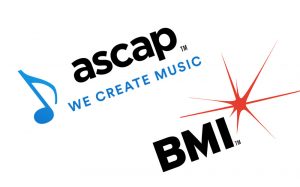 ASCAP and BMI are merging rights data into a single vault of musical works ownership that will make things easier for U.S. licensees, with a launch slated for late 2018. In addition to streamlining operations for customers, the move is a wise strategic tactic in fending off the U.S. Department of Justice’s push for single licensing, in that it will make it easier to navigate the sometimes challenging rights ownership labyrinth.
ASCAP and BMI are merging rights data into a single vault of musical works ownership that will make things easier for U.S. licensees, with a launch slated for late 2018. In addition to streamlining operations for customers, the move is a wise strategic tactic in fending off the U.S. Department of Justice’s push for single licensing, in that it will make it easier to navigate the sometimes challenging rights ownership labyrinth.
Between them, BMI and ASCAP account for about 90 percent of U.S. copyright administration. SESAC, GMR and self-administered copyrights account for the rest. The large performing rights orgaizations (PROs) ASCAP and BMI have been maneuvering to loosen restrictions on compulsory license under a consent decree imposed on them in 1941. The fight for a free-market approach picked up steam last year, only to result in a surprise DOJ move to further restrain the organizations by forcing a single-license on members, which the groups adamantly oppose.
By proactively making rights navigation easier, the groups further their strategic cause. The first-of-its-kind database is positioned as offering “greater transparency to music users and the industry.” The announcement was made today by Elizabeth Matthews, CEO, ASCAP and Mike O’Neill, President and CEO, BMI.
A cross functional team of copyright, technical and data experts from BMI and ASCAP began working on the project over one year ago, in anticipation of the demand from licensees and the industry for more clarity around ownership shares. The database, which will be publicly available initially via ASCAP’s and BMI’s websites, will feature aggregated information from BMI’s and ASCAP’s repertories and will indicate where other performing rights organizations may have an interest in a musical work. The joint database will serve as a foundation that can evolve to include a broader range of music information across the entire industry.
Matthews commented, “ASCAP and BMI are proactively and voluntarily moving the entire industry a step forward to more accurate, reliable and user-friendly data. We believe in a free market with more industry cooperation and alignment on data issues. Together, ASCAP and BMI have the most expertise in building and managing complex copyright ownership databases. With our combined experience, we are best positioned to make faster headway in creating a robust, cost effective market solution to meet the needs of the licensing marketplace.”
O’Neill added, “This is an important solution for the marketplace created by the experts who know their data best. We have always advocated for data transparency and supported the need for a user-friendly and comprehensive solution that would benefit music users and music creators alike. While BMI and ASCAP remain fierce competitors in all other regards, we recognize that our combined expertise allows us to create the best solution for our members and the marketplace. We’re excited by our momentum and the promise of what this database can become in the future.”
The respective teams are analyzing, testing and reconciling the data from each organization, addressing incomplete and/or incorrect registrations, share splits, U.S. representation of international works and complicated ownership disputes, among other things. They are now testing the combined data sets in a cloud platform, and the results of that analysis will serve as the foundation for the joint database.
The joint database will roll out in phases with Phase One expected to launch by the end of 2018, and include the majority of ASCAP and BMI registered songs. It will be secure, user-friendly and searchable and will be updated as new information becomes available. Future phases will explore customizable, interactive API solutions and the potential inclusion of other databases.
ASCAP and BMI have proven their commitment to industry-wide data transparency by making public aggregated song share ownership through their respective online, searchable repertory databases – ASCAP’s ACE Repertory and BMI’s Repertoire Search. Both PRO public databases already include the following information, which will be combined in the joint database:
- Song and composition titles
- Performing artist information
- Aggregated shares by society for ASCAP & BMI
- International Standard Work Codes (ISWC) and other unique identifiers
- IP names and numbers.
ASCAP’s and BMI’s respective databases will continue to be available on each organization’s respective website during the creation and initial launch of the joint database.


Comments are closed.